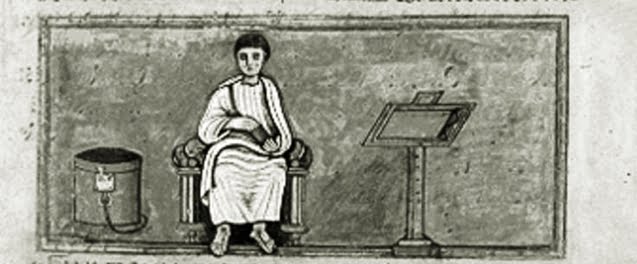
Virgil, Rome’s great poet
To listen to this post, click here –
On this day in 19 BC the Roman poet Virgil (Publius Vergilius Maro) died.
A shy and retiring bachelor from northern Italy who was physically too weak to be a soldier, Virgil lived through the civil wars that ended the Roman Republic, the assassination of Julius Caesar and the foundation of the Roman Empire under Augustus, the first emperor.
His most famous work, The Aeneid, traces the foundation of Rome back to the fall of Troy and the subsequent wanderings of its hero, the Trojan Aeneas. It can thus be seen as a work of propaganda designed to glorify and legitimise the newly created Roman Empire. Though modelled on Homer, it is nevertheless a magnificent and poetic work of art in its own right.
Arguably Virgil’s finest poetry is contained in the Eclogues, a collection of pastoral poems with idyllic themes such as the love of shepherds and shepherdesses which show Virgil’s love of the countryside. Legend has it that Saint Paul visited Virgil’s tomb at Naples and wept.
The Eclogues inspired many subsequent poets, not least Shakespeare. Here is a taste of Virgil from the start of the exquisite Eclogue VIII:
Saepibus in nostris parvam te roscida mala
(Dux ego vester eram) vidi cum matre legentem.
Alter ab undecimo tum me iam acceperat annus,
Iam fragilis poteram a terra contingere ramos:
Ut vidi, ut perii, ut me malus abstulit error!
“When, thou, a child, didst in our orchard stray
“And with thy mother, gather’dst dewy fruit
“I was your guide, and hardly had began
“The twelfth year of my age, but could just bend
“The slender boughs to earth, then saw I thee
“Then was I lost, by fatal error borne!
Today I pray that I will be inspired and grateful for the poetry in the world.
